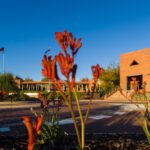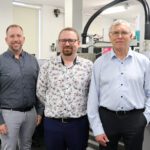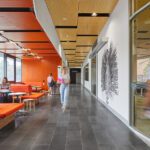The WA School of Mines Alumni has welcomed Curtin University’s plans to adapt the curriculum for mining-related courses in response to the changing needs of industry and students.
The new curriculum, part of widespread plans to position the WA School of Mines: Minerals, Energy and Chemical Engineering to train the mining workforce of the future, will facilitate emerging areas such as robotics, data analytics and additive manufacturing.
The development follows a cross-university working group initiated by Curtin, in consultation with the relevant stakeholders including high-profile alumni, to develop an action plan that stimulates demand for courses relating to the resources and mining sectors, and helps build a pipeline of skilled employees.
WA School of Mines Alumni President Raleigh Finlayson said industry representatives would help guide the direction of the new curriculum.
“The new curriculum will ensure WASM students transition from the classroom to a job in the resources sector, fully equipped to handle the technological developments that are transforming the industry,” Mr Finlayson said.
“As part of the process to develop the new curriculum, we will be seeking industry representatives to provide their input to ensure tomorrow’s graduates are meeting the needs of their future employers.”
Curtin University Vice-Chancellor Professor Deborah Terry said the University had sought expert advice and extensive consultation to ensure the WA School of Mines remained industry relevant.
“For the third year in a row, the School’s Mineral and Mining Engineering programs were ranked first in Australia and second globally by the prestigious QS World University Rankings and we are determined to ensure the School continues to evolve to meet industry and student needs,” Professor Terry said.
“The revised curriculum, which will address industry and student demands for different skills including robotics and data analysis as well as more flexible ways of learning, is currently being developed and will be progressively rolled out from 2020.”
Curtin recently conducted the Foresight Exercise, an expert panel chaired by former Head of Innovation at Rio Tinto, Mr John McGagh, which met with about 50 internal and external stakeholders, as part of the University’s long-term commitment to the School.
A key recommendation of the panel’s report included the new curriculum, and Curtin has engaged a leading academic, Emeritus Professor David Brereton, to ensure it will equip graduates to work in a highly technical, sophisticated and evolving industry.


